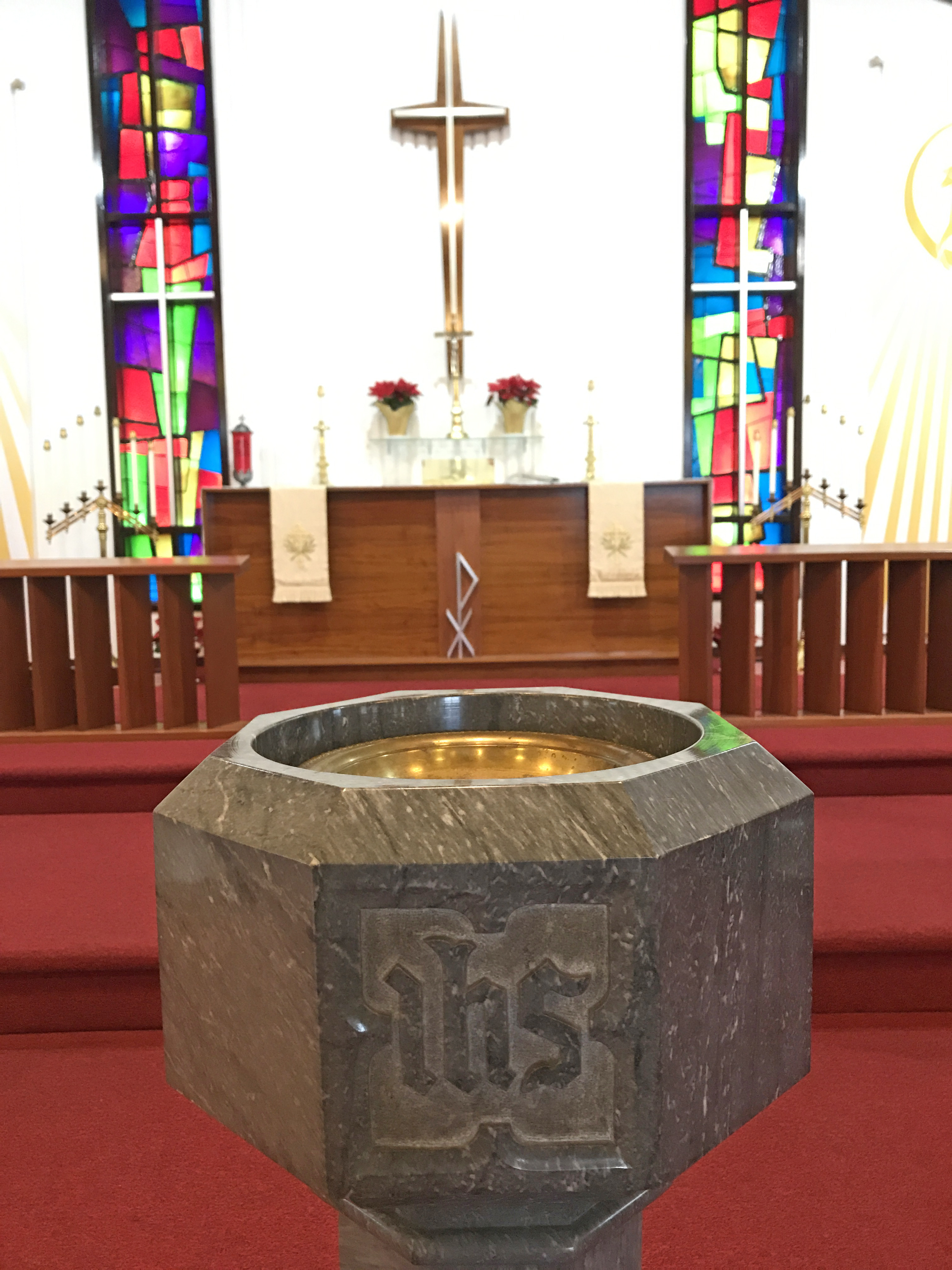The Ninth Sunday after Trinity – Sunday 6 August A✠D 2023
✠ Psalmody: Psalm 54:4-5; 54:1-3, 7;8:1;112:1
✠ Lection: Proverbs 16:1-9;1 Corinthians 10:6b-13;Luke 16:1-9
In the Name of the Father and of the ✠ Son and of the Holy Spirit. Amen.
The unjust steward is a marvelous parable, just as are all those given to us from the mouth of our Lord Jesus Christ. In our annual encounter with it, as with all parables, we must continue to remember to seek first what is being taught to us about God, and, only then, secondly what a godly response from us would look like. Without the prior, the latter poses the risk of turning into pietism, or worse, works righteousness.
Again, consider the parable. A man was called to serve a certain rich man; someone who obviously owned much land and possessions and required additional help in managing and tending to it all. This is similar to how the Lord has setup creation. By no means does Almighty God need anything from us, but in His own goodness and desire to serve and redeem all, He gives us neighbors that we can love and serve on His behalf, in His creation, and money and possessions to steward for their benefit. But this steward in the parable had been unfaithful with what the master had given him charge. He was wasting his master’s goods by using them in ways contrary to how He would have them. We can see ourselves in this man, for the Lord has given much to us all and yet our desire most often steers toward how we will be further served by our money and possessions instead of how they may benefit someone else. To some extent such a reaction is understandable when you have local, state, and national government agencies stealing from you on every paycheck, on every April 15th, at every inheritance, at every purchase of goods, and so on. Tax should be a four-letter word with how it has come to be grossly abused by governmental bureaucrats. Couple that reality with the rampant wickedness of cheating, deception, and theft that common people commit against each other and we have not to wonder much more why our minds and fists tend to clinch our wallets and pocketbooks all-the-more tighter. Yet, it’s even in full knowledge, as the omniscient God has, that He still calls us to be faithful stewards of His blessings and to be wise and generous as He is, even when it appears to be risky or foolish for us to do so.
But back to the most important thing that this parable teaches us: He Who is all-possessing is also all-merciful. It is seen from the very beginning of the story. There was a certain rich man who had a steward, and an accusation was brought to him that this man was wasting his goods. So he called him and said to him, ‘What is this I hear about you? Give an account of your stewardship, for you can no longer be steward.’ A perfectly justifiable reaction would be to throw the man and his family straight into prison until every last penny is repaid of what the unwise and unjust steward had wasted of the master’s goods. What is the immediate and warranted response from God toward us when we are unfaithful with that which He has given to us to spend on others: our time, our care, our money, our labor, our inconvenience, our trust, our speech? How does our Master treat us? The reaction is the same as that which Adam and Eve deserved the very second they disobeyed the Lord’s command not to eat of the tree of the knowledge of good and evil. Mercy doesn’t equal forgetfulness. Blessed be His Holy Name that He is merciful and doesn’t always immediately reap upon us that which we have sown for ourselves in our unjust thoughts, words, and deeds. The master didn’t immediately give the steward his due reward, but He did give him a consequence that put the man in position out of which he could see only one way to survive.
The very-soon-to-be-completely-not-a steward quickly understood the predicament his own hide had gotten him into and it’s healthy and wise for us to humble our ownselves to believe and respect the truth of what an affront our wastefulness and lack of stewardship are to God and how merciful that requires Him to be to us, lest we perish rightfully. These are the positions into which the Lord puts us and wants us to realize with fear and trembling combined with trust and hope. The steward saw his errors and saw that he could not help himself on his own out of the consequences, even though they had already been lightened by the mercy of his master. So, what does he do? What are we to do when this world confounds us? Or our enemy? Or our miserable rotten flesh that brings us again into moments of shame over repeating a sin, by seeing how wasteful we are with God’s bounty in our lives, or by getting us to say, think, or do something that would cause us to sharply look down upon someone else if he had done the same thing? This steward acts boldly and trustingly in the knowledge of the mercy of the Master. He masterfully stewarded the mercy of his and the debtors’ master. He knew that he would either survive by the Master’s mercy or he would perish without it being real for himself and others.
This is God’s desire for us all. The dire circumstances that He brings about in our lives are meant to show us the truth that we live in all the time: we need God’s mercy. We need His favor to be upon us both to not rain down the wrath upon us that we deserve, but to also shower us with the good gifts that we and our neighbors need that He gladly gives out of His hand. The mercy of the master, the mercy of your Lord is the foundational teaching and point of what we encounter here. It is the fundamental doctrine upon which the parables are built, while each takes that truth and shows us how to respond to such goodness of the Lord.
In this case, it is our faithful stewardship, as was said before. God does not give us His mercy so that we may take advantage of it and satisfy our every fleshly desire, but rather live by mercy and show it to others so that they recognize and glorify the Merciful One to their benefit and His great pleasure. Even more specifically in this parable, is how we are can be wise in how we view and treat unrighteous mammon as the Lord allows it to be in our pockets, bank accounts, and in all that we own. Worldly and fleshly wisdom would say amass as much of it for yourself as possible, but the Lord says to make use of what He provides so that others may see their needs fulfilled and glorify their Master and ours. All the world shares the same Master, whether they acknowledge Him or not. He gives food and shelter to the just and unjust alike so that those who know His mercy, and more importantly, He as the merciful One, may be joyful in a life full of Him while wanting to share that eternal treasure of thanksgiving with others so that they may know the same.
In ✠ Jesus’ Name. Amen.















Comments are closed, but trackbacks and pingbacks are open.